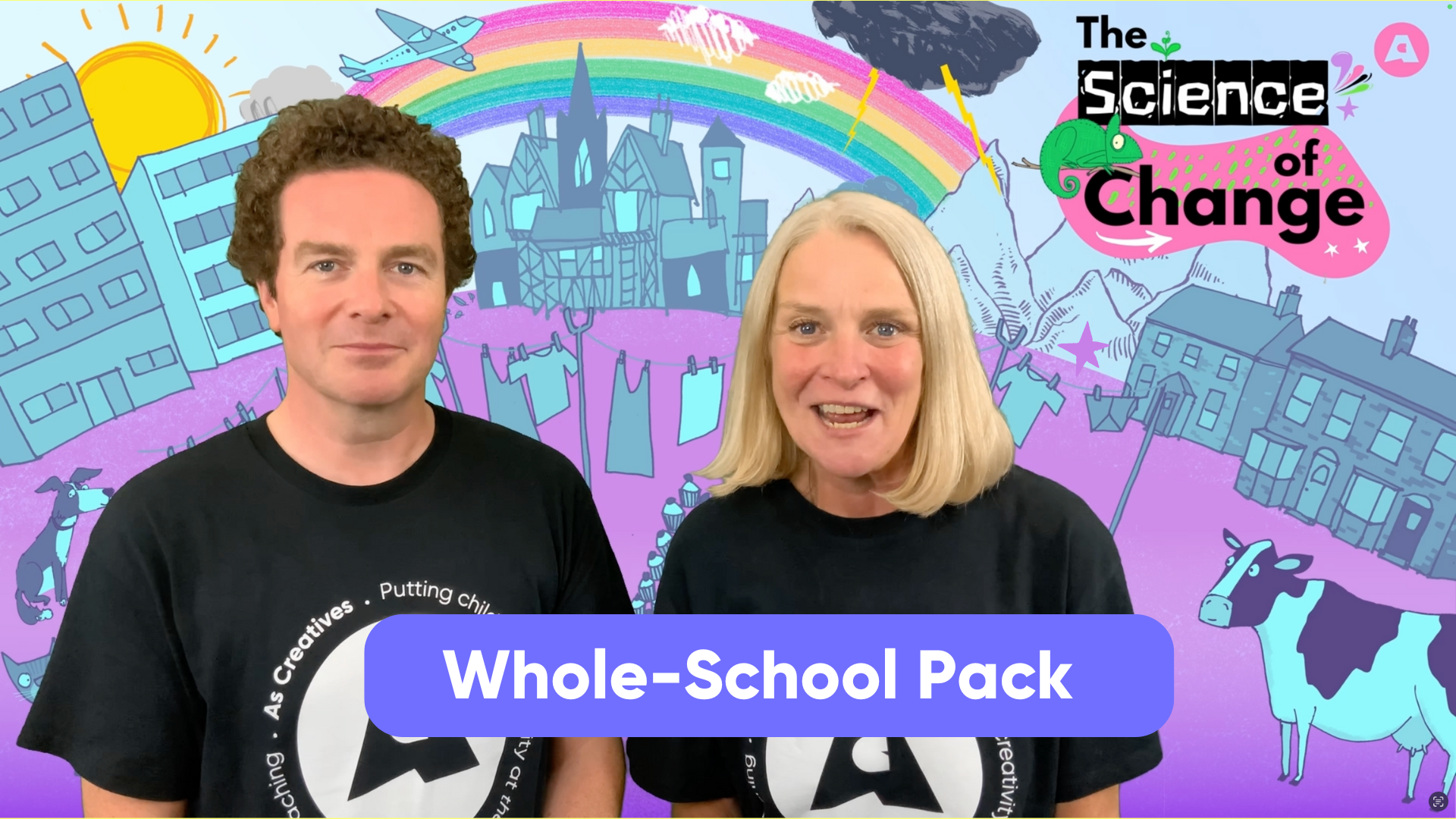Maths Around the World - World Maths Day Teaching Resource
Product Video
The Science of Change Teaching Resource Pack
A highly engaging, revelatory and thought provoking and informative whole-school programme, The Science of Change pack comprises …
- Full instructions for teachers.
- A filmed introduction to explore the theme of “change and adapt” – which can be shown at a whole-school assembly or to individual classes as a stand alone.
- Changing Challenges – quickfire challenges designed to whet your pupils’ creativity.
- Interactive, filmed workshops (one per year group from EYFS – Y6/P1-P7) giving pupils opportunities to explore age-appropriate, curriculum-related aspects of The Science of Change – and to learn about scientists, technologists, engineers and mathematicians (one per year group) whose work on or led to change.
- Fact Sheets: Each film ends by introducing the pupils to an individual from the past, connected to their Science theme.
- Follow-up Worksheets: There is one of these for each year group to complete after taking part in the workshops.
The topics and scientist each year group will explore is as follows:
– Reception / P1 (Exploring the World): Adapting our Kitchens … How have items in our kitchens changed people’s lives? What’s the science behind some of them? And who are some of the great Kitchen Inventors?
Individual in focus: Sarah Boone, an American woman who, despite being born into slavery, adapted existing designs to invent the modern ironing board!
– Year 1 / P2 (Materials): Adapting our Clothes … What materials do we use to make clothes? How do scientists adapt these for different purposes? And how might things change in a more sustainable future?
Individual in focus: Empress Leizu, an Empress of China who, the story goes, was the first person to make silk – and who adapted farming methods to share her discovery with others!
– Year 2 / P3 (Plants): Plant Adaptations … How do plants adapt to different habitats and conditions? How do scientists observe these adaptions? And what role does the Sun play in all this?
Individual in focus: Jagadish Chandra Bose, an Indian scientist who made important discoveries about ways in which plants respond to their environments.
– Year 3 / P4 (Forces): Adapting for Forces … What do we mean by “forces”? Which forces have particular impacts on our lives? And how do scientists and inventors adapt their work to take account of forces?
Individual in focus: Alexander Miles, who was lucky enough to be born in the free state of Ohio and so not enslaved, and who used forces to make department stores much safer places!
– Year 4 / P5 (Animals, including Humans): Adapting to Diet … How are digestive systems adapted to diet? How does the human digestive system work? What about the digestive systems of other classes of animal?
Individual in focus: Aleen Cust, born in Ireland and one of the world’s first professional women vets, Aleen cared for the army’s horses on the front in World War I.
– Year 5 / P6 (Properties and Changes of Materials): The Science of Food Adaptation … What is the science of baking? What roles do reversible and irreversible reactions play in this? And what about states of matter?
Individual in focus: Ruth Wakefield, an American cook who used a range of factors, including temperature, insulation and surface area to invent the “impossible biscuit” – the chocolate chip cookie!
– Year 6 / P7 (Light): Adapting our Uses of Light … What are the properties of light? How have scientists used these to change our lives? And how do we use light to capture our memories?
Individual in focus: Ibn Al-Haytham, an Islamic scientist, mathematician and astronomer – and inventor of the pin-hole camera.
Just want to buy the EYFS/KS1 or KS2 packs?
You can purchase these separately here …
Taster Clip from the EYFS film
Taster Clip from the Year 1 film
Taster Clip from the Year 4 film
